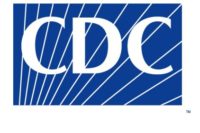Optometrists anticipate “boom” in eye diseases as baby boomers turn 60
Some diseases have no symptoms in early stages

 In a year where an estimated 2.8 million baby boomers will celebrate their 60th birthday, age-related eye diseases are becoming increasingly important health issues, according to the American Optometric Association (AOA).
In a year where an estimated 2.8 million baby boomers will celebrate their 60th birthday, age-related eye diseases are becoming increasingly important health issues, according to the American Optometric Association (AOA).
“Today’s 60-year-olds are more health conscious than 60-year-olds 20 years ago,” said Richard C. Edlow, O.D., AOA Information and Data Committee chair. “But being better informed about health risks, improved technology and treatment options has not necessarily translated into including regular eye examinations into their health care routine.”
The National Eye Institute estimates that over the next 30 years, the current number of blind or visually impaired Americans will double because of aging baby boomers. According to the AOA, 20.5 million people age 60 and over have cataracts, a leading cause of poor vision in the United States.
“Age-related eye diseases do not have to lead to vision loss or blindness,” Dr. Edlow said. “Some of these diseases have no symptoms in the early stages, which is when it is most critical to help slow the progression of vision loss.”
A comprehensive eye examination provides doctors of optometry with information about the health of the eyes, and also offers indications about diseases that affect the whole body, like diabetes and hypertension.
The AOA has developed the Baby Boomer’s Checklist for Healthy Vision, which presents questions about visual symptoms and scenarios where vision is especially important. If individuals answer yes to any of the questions, they are encouraged to schedule an appointment for a comprehensive eye exam with their doctor of optometry.
Are you:
- Someone with diabetes, hypertension, or any other systemic or chronic disease?
- At risk for certain systemic or eye diseases because of family history or other factors?
- Having more difficulty reading smaller type, such as books and newspapers?
- Experiencing frequent headaches after working on a computer?
- Doing a great deal of reading and other close work?
- Rubbing your eyes frequently or having tired or burning eyes?
- Losing track of a person or objects in your peripheral (side) vision?
- Avoiding close work?
- Having difficulty driving at night?
- Experiencing frequent near misses, accidents, or difficulty parking with driving?
- Handling or using chemicals, power tools or lawn and garden equipment?
- Playing eye-hazardous sports like racquetball, softball, or tennis?
- Experiencing difficulty with eye-hand-body-coordination?
- Playing sports and having trouble judging distances between you, the ball, or other objects?
If you checked yes to any question on the checklist, or you have not seen your doctor of optometry in over a year, be sure to schedule an appointment for a comprehensive eye examination. Your eyesight and eye health deserve to be protected and monitored. Even if you didn’t check yes, keep in mind that symptoms of vision problems aren’t always apparent.
“Many people don’t understand that even though their vision may be clear, exams can uncover changes in the eye caused by high blood pressure, diabetes, retinal disorders and glaucoma,” said Dr. Edlow. “Since there are more treatment and rehabilitation options than ever before, early detection is all the more critical.”
Looking for a reprint of this article?
From high-res PDFs to custom plaques, order your copy today!






